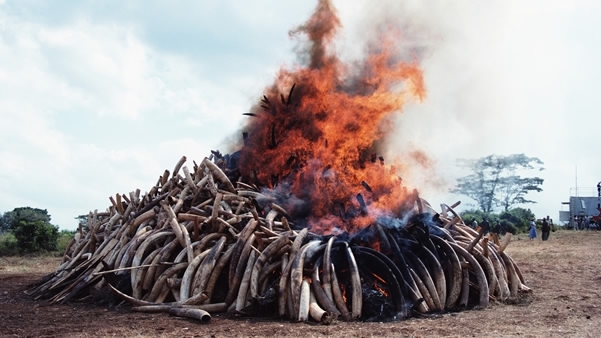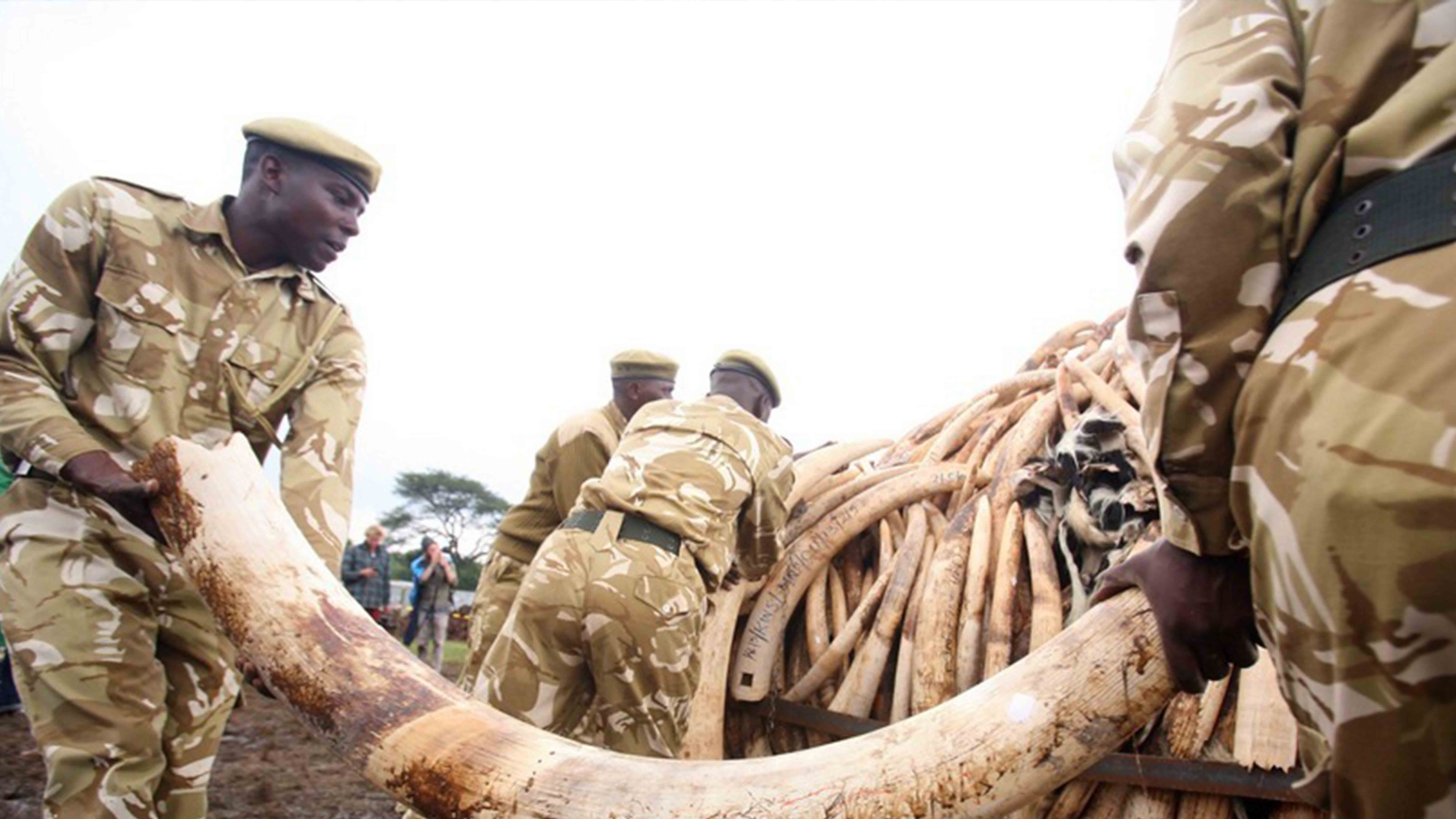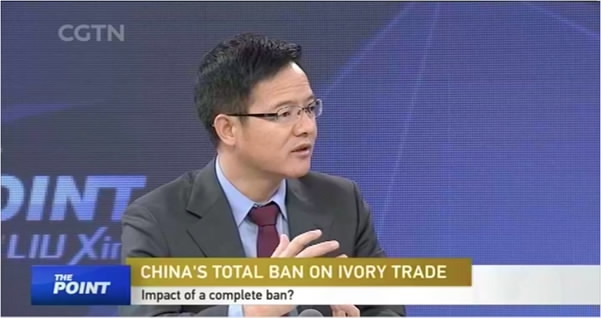
Opinions
22:11, 26-Dec-2017
Fight against ivory sale benefits from China’s ban, but hurdles remain
CGTN's The Point

"The only thing that is making African elephants die every day is the presence of the trade and the activity of poaching, and this requires global attention," said Jim Justus Nyamu, executive director and founder of the Elephant Neighbors Center on CGTN’s The Point.
On December 30, 2016, China announced it would eliminate the processing and sale of ivory by the end of 2017. Nyamu praised China’s announcement and argued that other countries should not only appreciate China’s effort, but also follow suit.
"We don’t have time to lose because we are running out of time. The government must support the institutions doing wildlife conservation," he said.
In Kenya, China’s ban can already be felt. This year, the country recorded a decline in poaching activity targeting elephants and rhinos compared to the past three years.

"When you see the two countries now standing side by side and saying we want to stop this trade, and this happened with the US and China, it was a very big boost," said Paul Gathitu, spokesperson for Kenya Wildlife Service.
"We’ve had five consecutive years when the overall level of poaching has declined,” said John E. Scanlon, secretary-general at CITES, adding that “it hasn’t declined fast enough. We still have too many elephants poached across the African continent."
In West and Central Africa, the imminent threat of extinction of local wildlife still exists and urgent action must be taken.
African elephants can only be saved through global efforts, which require source countries, transit countries and destination countries joining hands and playing their respective roles to put an end to ivory trade. According to Zhao Zhonghua, country director at World Animal Protection in China, this is also the reason why actual poaching activities and the ivory trade are so hard to regulate.

Zhao Zhonghua, Country Director at World Animal Protection in China / CGTN Screenshot
Zhao Zhonghua, Country Director at World Animal Protection in China / CGTN Screenshot
Since the announcement of the partial ban on ivory at the end of last year, the demand for ivory has been significantly curbed. Ivory price in China has dropped by half, and the market in Vietnam was also affected. There, the price has slipped by two-thirds.
However, in neighboring Japan, ivory trade is still legal and ivory products are openly sold online.
Japan’s lax ivory market regulations and policies could undermine and threaten China’s ban. "Culture cannot be built on cruelty and the sacrifice of elephants," says Zhao.
Awareness of the public and the government is critical.
The Point with Liu Xin is a 30-minute current affairs program on CGTN. It airs weekdays at 9.30 p.m. BJT (1330GMT), with rebroadcasts at 5.30 a.m. (2130GMT) and 10.30 a.m. (0230GMT).

SITEMAP
Copyright © 2018 CGTN. Beijing ICP prepared NO.16065310-3
Copyright © 2018 CGTN. Beijing ICP prepared NO.16065310-3